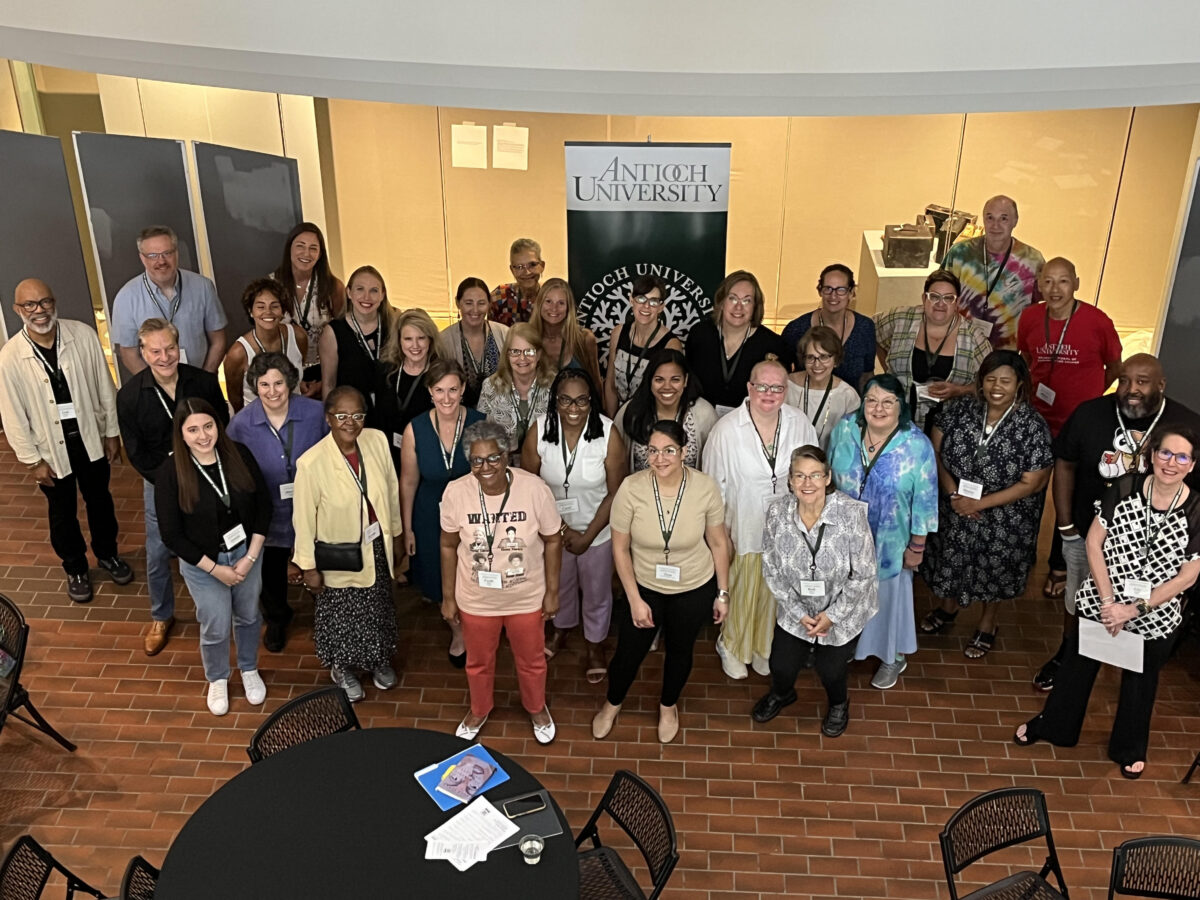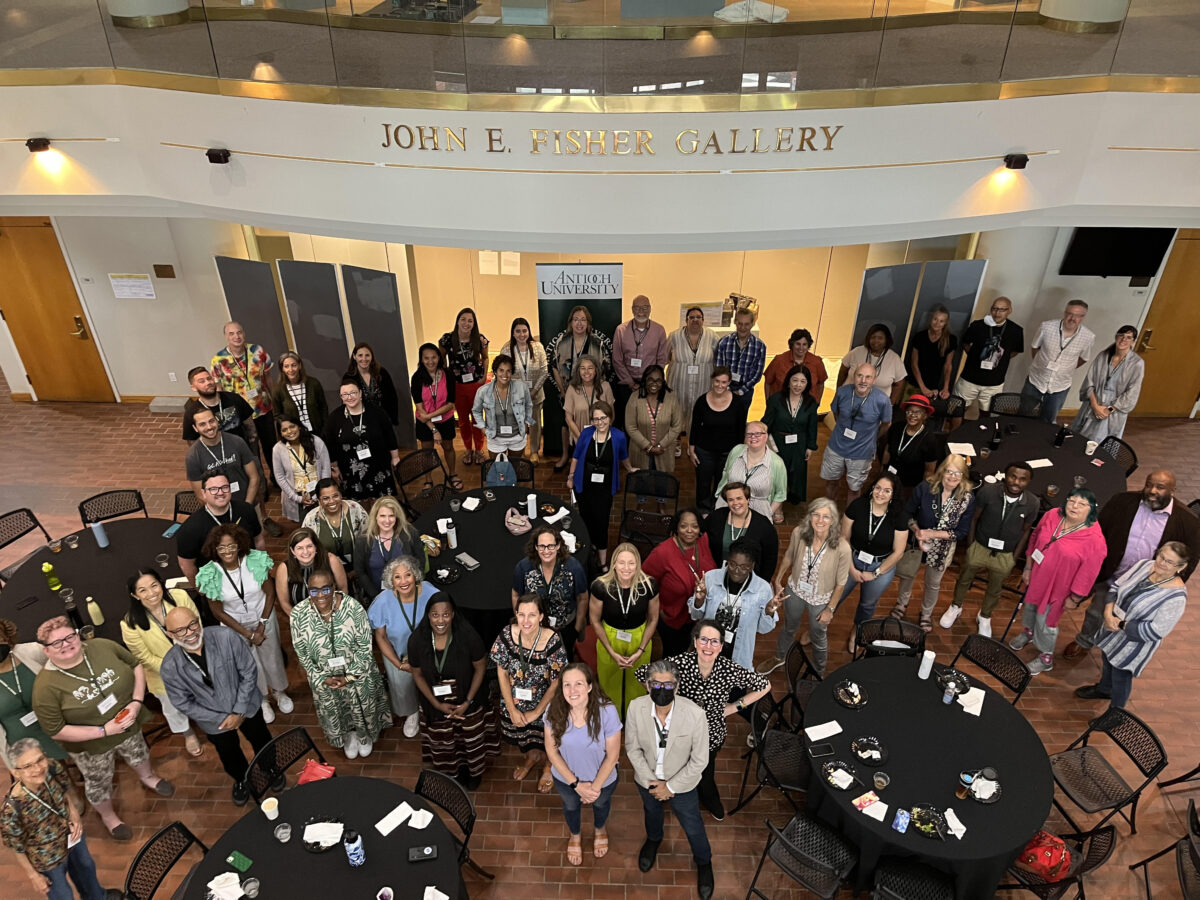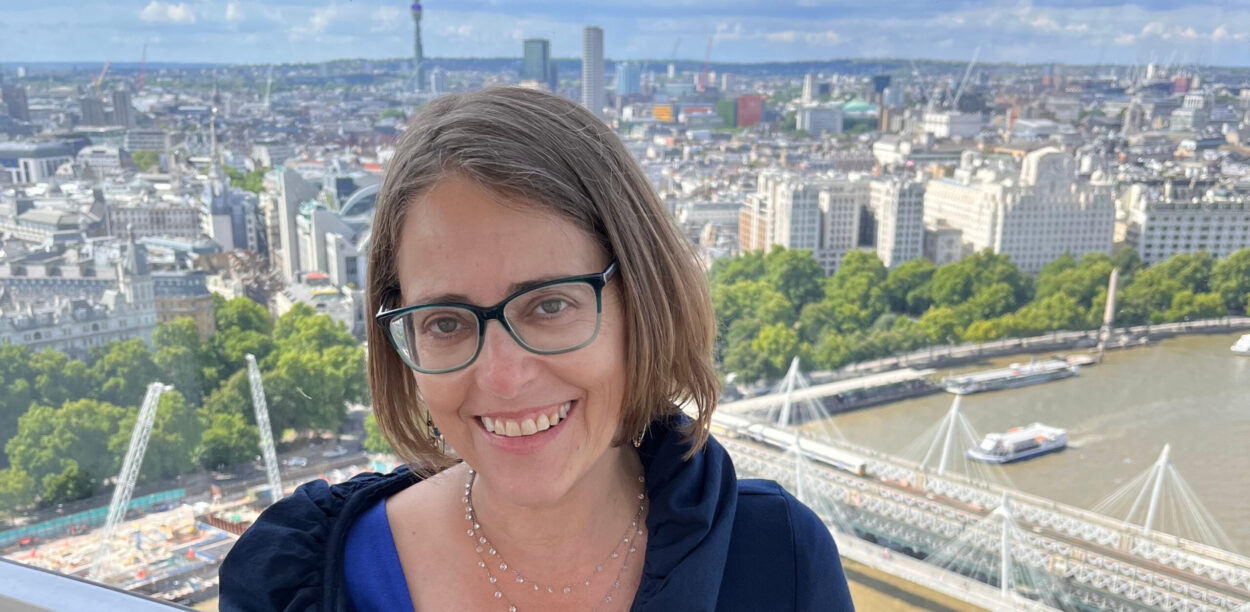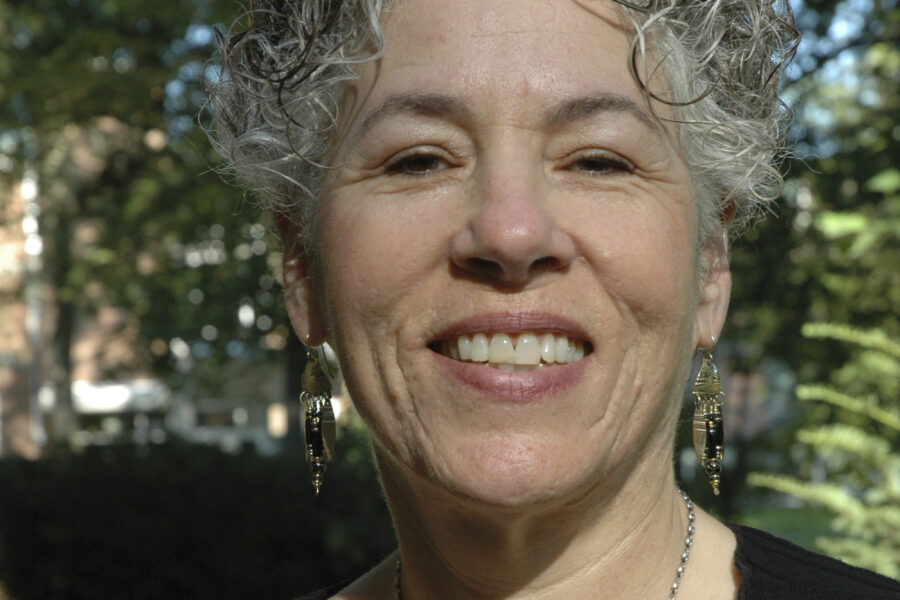I have just turned the calendar page on my first six months at Antioch University. In a recent conversation with one of my closest mentors he asked how I am doing and feeling about my new role and professional transition. I exclaimed, very happy! A long list of reasons underscore my state of happiness, which fundamentally boils down to the intentionality, values, and commitments of this relational and caring learning community I now call my professional home.

During my first official residency in July, I was brand new and frankly nervous. However, my jitters were quickly offset by the generous welcome I received from the students and alumni I met, and by my new faculty and staff colleagues. I am a firm believer in the power of academic residencies and the growth-fostering impact immersive learning experiences have on students and teachers alike and the July 2023 residency did not disappoint. While I visited with each cohort group, I took up residence with our newest Cohort 23 (C23) to observe the full arc of the first residency experience. Having the opportunity to attend faculty workshops, sit in on advising sessions, and to spend time with our Faculty Research Librarian Steve Shaw learning about how he supports student and faculty research made visible for me just how carefully the values, objectives, and the program design are intentionally interwoven into the fabric of the curriculum. Completing residency week with participating in graduation and witnessing the beauty and joy of commencement with newly minted PhDs in cap and gown, celebrating with dissertation chairs, family, and friends was truly a joy. As a relational learner and leader, learning together in person, on the charming Otterbein University campus was an invigorating gift and orientation to my new professional community.

My goal for my first year as Associate Dean of the Graduate School of Leadership and Change (GSLC) and Director of the PhD in Leadership and Change (PhDLC) program was to listen to learn. The listening has been ongoing and the learning active and steep. Since July I have been busy learning about our program, engaging in ongoing discussions with our Dean and one of our program’s founders Laurien Alexandre and the faculty and staff program team to determine how we continue to evolve and move forward with our program mission. These discussions are active and ongoing as we consider future initiatives and directions for GSLC and the PhD program. I have held navigating sessions for students in C23, met with members of Cohort 20, and frequently have opportunities to meet one-to-one with current students and alumni. I am grateful for the generous discussions with students and alumni and the window they offer me into their individual and collective experiences as learners in this program. I have met with many of our affiliate faculty to learn how they contribute to the research methods instruction offered to our community and am so appreciative for the research mentorship offered by their ongoing contributions. Last November, I attended the International Leadership Association (ILA) global conference along with many students and alumni, and was joined by GSLC Core Faculty Lize Booysen, Lem Watson, and Aqeel Tirmizi. It was wonderful to see our students, alumni, and faculty presenting their research and to experience the impact of GSLC’s numerous contributions to ILA and to the scholarship on leadership theory and practice.
As we are all aware, higher education is going through rapid disruptive and transformational change, touching all university types and populations of demographics served. One recent development I have previously shared with our community is that we will welcome colleagues from the Union Institute and University, which is closing several of its academic programs. Ninety doctoral students in various stages of their own studies will join GSLC as the Union Cohort. Antioch and Union have a shared history of experimentation in higher education dating back decades. The two institutions share a mutual commitment to supporting nontraditional learners and experimentation in higher education, a long standing commitment to social justice and educational equity, and a dedication to rigorous doctoral education. These shared beliefs inform the basis of our commitment to support the Union students during this period of transition. Providing an academic home for the Union Cohort to complete their doctoral studies is the best expression of supporting access, equity, and student success in higher education, and is consistent with the mission and values of Antioch University and GSLC. I am delighted we can offer a completion home for the doctoral students. Significant development work is underway to ensure a successful transition of the Union Cohort, and the Dean’s team including Jen Swartout and Les Creighton, as well as colleagues from across AU, have been instrumental in this critical transition effort.
As I am well into my next six months, I am confident that my happiness will persist as I am engaged with teaching, learning, and leading work that matters, and do so in a relationship with students, alumni and faculty committed to the values and goals of the PhDLC program. As with any major professional or life change, it took me a bit of time to plant my feet and to slow my sense of disorientation – and as Jack Mezirow theorized, it is in periods of disorientation where one experiences growth and new ways of seeing and meaning making – and this period of disorientation did not let me down.



